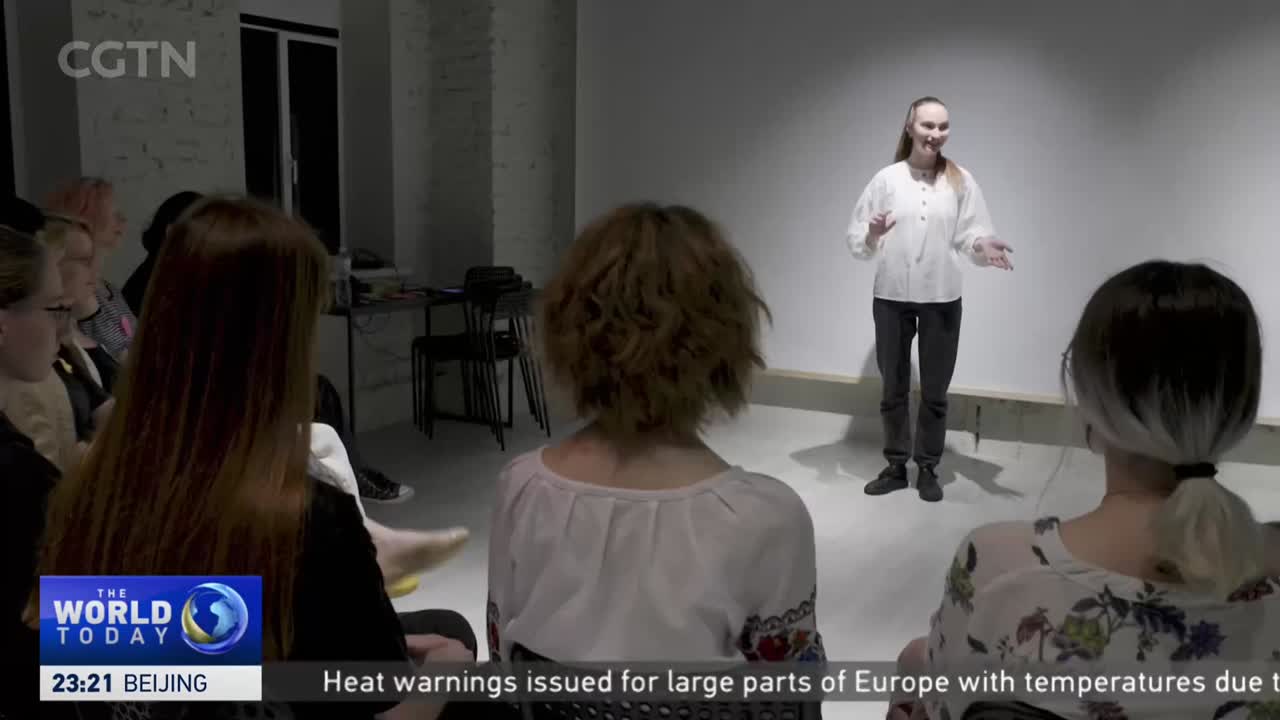02:06

While Russia continues to attack Ukraine, Kyiv advances what it calls the 'derussification' of its country. Not only are Russian monuments and street signs being demolished, but its language is increasingly frowned upon.
"When Russia's full-scale aggression started, I understood that I cannot speak Russian anymore," Kyiv resident Natalia Lashchonova told CGTN. "I decided to switch to the Ukrainian language."
The 56-year-old accountant is one of numerous Russian-speakers in Ukraine who are determined to completely change the way they used to speak.
"It was hard to start talking in Ukrainian, because I have never studied it before," Lashchonova added. Instead of saying 'Privetstvuju', she now greets people with 'Vitayu'.

Before the start of the full-scale conflict, Natalia Lashchonova was mostly surrounded by a Russian language environment. /CGTN
Before the start of the full-scale conflict, Natalia Lashchonova was mostly surrounded by a Russian language environment. /CGTN
Since February, the number of Ukrainian language courses has grown rapidly. Volunteers are helping the country's Russian speakers to transition to Ukrainian, free of charge.
"In total there are not hundreds of these schools - there are thousands across the country," says Sofia Denysiuk, founder of 'Jedyni' - one of the largest Ukrainian language course providers.
But Moscow's aggression has not only led to a linguistic transition. More and more places in Ukraine forbid visitors from speaking Russian. One of them is the cultural center 'Ukrainskyj prostir Inteligentsiia' which say it is derussified.
"That's the only rule of this place: to not speak the Russian language," manager Dmytro Medzhul told CGTN. "Because Russian is the language of occupiers and aggressors."

Some privately-run city buses in Kyiv used to play loud Russian pop music. /CGTN
Some privately-run city buses in Kyiv used to play loud Russian pop music. /CGTN
Like many other Ukrainian cities, Kyiv has been changing hundreds of street names that were established during the Soviet-era. Furthermore, 60 Russian monuments and memorial plaques are set to be demolished.
Most recently, Ukraine banned loud Russian music in public places such as buses. It's a law that has been upsetting parts of the population.
"I think it is inappropriate to ban Russian music now," Kyiv resident Dmytro Ivanov told CGTN. "It doesn't help the country in any way to live better and it doesn't bring us closer to victory. Therefore, I don't think that this ban is relevant right now.”
Some of these bans might one day be revoked but what will certainly remain is an increased use of the Ukrainian language.

